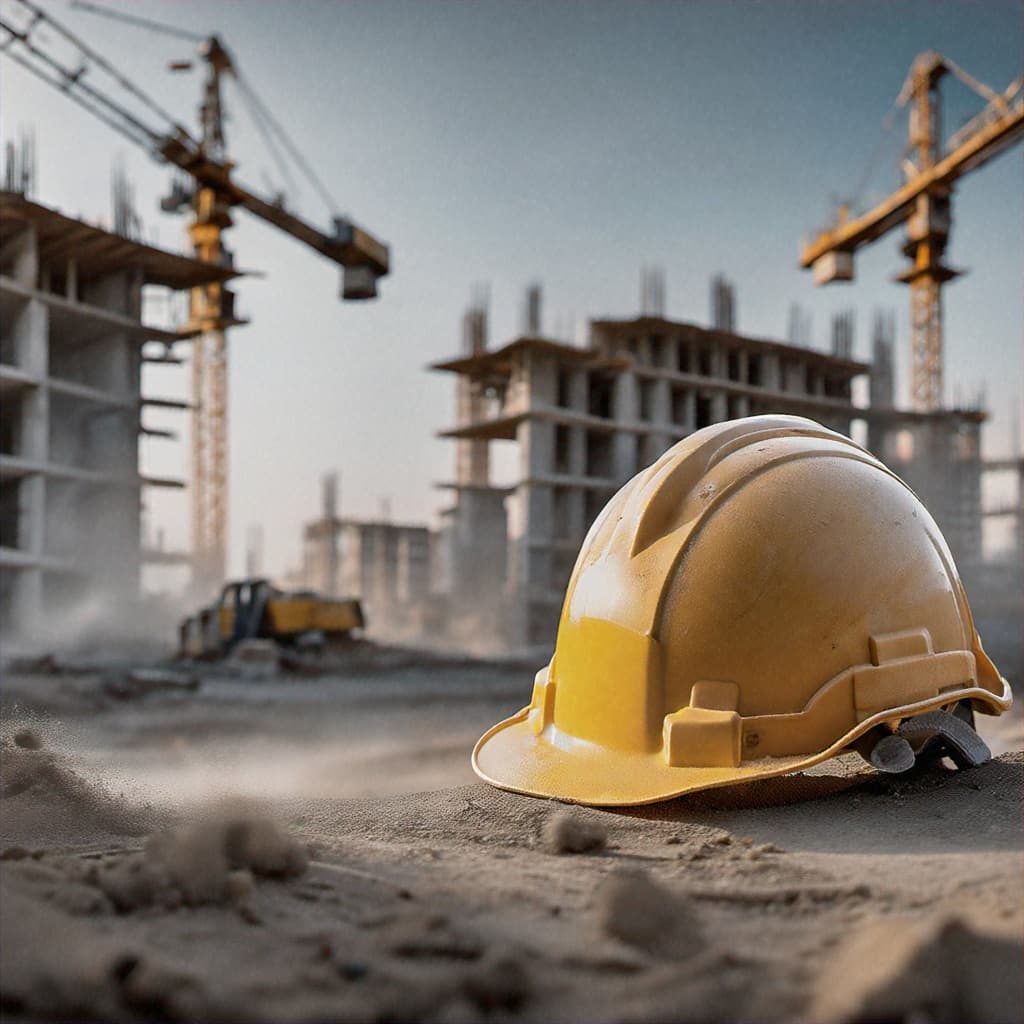How to Avoid Construction Litigation

Construction projects can be exciting and profitable opportunities for entrepreneurs and businesses. However, they can also have potential legal pitfalls, leading to costly and time-consuming litigation.
Many consider construction projects litigation intensive, where even the best-designed projects will lead to court. Construction litigation is frequent because these projects involve high stakes. However, it does not have to be that way. Although you can never fully control the actions of other parties in a project, you can take steps to reduce the chances of a lawsuit on your own.
Being proactive and acting on potential risks ahead of time can lead to fewer lawsuits.
Learning about possible risks before you begin work or enter into an agreement for a project is essential. Then, to reduce your risk, you should put as much as you can into writing, whether it involves contracts or policies and procedures. You should also take steps to follow both contracts and guidelines at all times.
Finally, you should hire a construction law attorney to guide you through various project stages. Do not wait until there is the looming threat of litigation to get advice and counsel from a construction lawyer. Hiring a lawyer at the outset of any work can give you additional protections and help you avoid potential problem areas that can lead you to court or leave you on the wrong side of government enforcement action.
Construction law attorneys understand the legalities surrounding construction projects and can deal with construction contracts, permits, and regulations. They can review and negotiate contracts to protect your best interests, identify potential legal issues before they escalate, and provide guidance on compliance with local building codes and regulations.
Here are some steps that you can take to keep yourself from having to face construction litigation in the future.
Learn and Follow OSHA Safety Rules
Construction companies must operate safely and follow the safety rules that govern their employees’ work. Although workers cannot sue their employer (the workers’ compensation system is their exclusive remedy even if their employer commits wrongdoing), construction companies may still face litigation from other third parties who have suffered injuries from their actions.
Failure to file safety rules can also lead to government enforcement action. When an employee reports a safety violation, the local OSHA (Occupational Safety and Health Administration) office will have to perform some level of investigation. In extreme cases, they can even take action to shut down a company that has committed egregious violations of the rules, leading to possible litigation. Construction companies should closely follow OSHA rules because the risks of not doing so are significant.
Know the Legal Landscape Governing Your Construction Project
Besides safety regulations, several laws apply to your construction project. First, you may have to contend with local zoning and land use laws determining how to use a particular property. If you are a construction company, state laws govern how you can build. Then, there may be environmental laws that you need to follow. Failure to comply with these laws can lead to government enforcement actions and private lawsuits, which you want to avoid.
Companies should also be aware of employment laws governing their workers’ relationships. Even though workers cannot sue employers in personal injury actions, they can file lawsuits in other contexts when there has been a violation of their rights. For example, construction workers can litigate against their employer under earnings and hour laws when their employer has not paid them in accordance with the law.
Institute a Culture of Compliance

Companies in the construction process need to have a culture of compliance that extends throughout the company. Compliance can mean many things in a construction setting. First, it means following the law to the letter. Second, it also means strictly following your signed contracts.
Some construction companies or customers may cut corners whenever they can to make as much money as possible. Although this practice may lead to short-term financial gain, it can also set you up for long-term costs and risks in litigation. Investing money in safety and compliance and taking the time to do things right will cost you now, but it will also save you. Construction companies and customers must always consider the long-term risks they may face if they do not follow the law or the signed contracts.
Accordingly, risk management must be a primary focus at all times. It is better to work proactively to avoid a potential problem by having policies and procedures and always following them. Managers should execute these policies and ensure that employees follow them at all times.
Never Have Any Oral Agreements with Other Parties
Although an oral contract is technically enforceable under the law, you do not want to be in a position to argue that there was an agreement and what it was. You can protect yourself to the fullest extent and your legal rights when you reduce any agreement to a formal and signed legal agreement. Even if you think you can trust the other party, you never quite know what will happen when your relationship gets underway, and disagreements can cost them money.
Closely Review All Contracts Before You Sign Them

Any contract you sign is a binding legal document, and you will have rights and obligations under the contract terms. If you or the other party fails to perform in accordance with the exact terms of the contract, it may result in litigation.
Before you sign any contract, knowing precisely what you are signing is essential. The contract should be specific, and there should be no ambiguities. If you remove any uncertainty through exact contractual language, it can help you avoid lawsuits. Sloppy drafting can come back to haunt you once you begin the contract performance and you have disagreements with the other party.
Your contract needs to be consistent in all places. Internal inconsistencies in the document can throw the entire meaning into doubt and increase the chances of a lawsuit. On your own, it may be challenging to perform a thorough enough review to catch any ambiguities or inconsistencies in the contract. Having a construction attorney review these documents can ensure they are legally sound and protect your interests.
Remember that every word and term in a contract has a definite legal meaning. If there are disagreements about the contract, the court will look at the exact document when deciding on any dispute. A judge will generally not care what you thought or meant because the contract is the final expression of the agreement between the parties. A judge will only look to external evidence if the exact language of the contract and rules of contract interpretation cannot determine what the document says.
Maintain Documentation of All Key Events
Your records will be key in backing up your position in any dispute, and you should retain all records of any key events in the life of your contract or project. Documenting all communication and changes in writing can provide evidence in case of disputes later. If the other party sees you have extensive documentation, they will be less likely to want to litigate any dispute.
Act to Enforce Your Rights Under the Contract
You need to take prompt action once you notice that the other party is not following their obligations under the contract. This action does not always have to be an immediate lawsuit. You can notify the other party that they are breaching the contract terms to bring the matter to their attention. You must do this early to keep a difficult situation from getting worse. If you fail to notify the other party of a breach, you may put yourself in legal jeopardy because it may look like you have waived your rights under the contract.
When you act to enforce your contractual rights, always do so in writing. This way, the other party will have formal and unambiguous notice of your position, and they cannot argue that you failed to put them on notice of the breach. You will have this record to protect you if you need to litigate.
Do Extensive Due Diligence on Your Partners
One of the best ways to avoid litigation in the construction setting is to understand who you are doing business with. Before you reach any kind of agreement with anyone, it is essential to do your research on the counterparty to the contract. Some simple research can reveal that the other side may be litigious or have a history of failing to uphold their own legal obligations.
If you are a property owner, you may face lawsuits based on the actions that a builder or anyone working with your property takes. Your finances and success depend on them, so you should always know who you are dealing with. Check their past performance and reputation through references and online reviews. Hiring reputable and experienced professionals can significantly reduce the risk of substandard work, delays, and disputes.
The amount of due diligence you must perform depends on the context of your contract and the amount of money it involves. A construction law attorney can help you with the research necessary to complete comprehensive due diligence.
Try to Negotiate Resolutions to Your Disputes
Not every disagreement needs to end up in a lawsuit or trial, and you can resolve many disputes through early discussions and even collaborative efforts between the two parties. Reaching an agreement on any dispute is possible before one party needs to file a lawsuit. You can modify the contract or execute a separate agreement that addresses the situation.
Sometimes, sending a formal letter to the other party can begin the negotiation process that may lead to an agreement. You have a clear incentive to try to work together to the fullest extent possible because construction litigation can be expensive and time-consuming. Litigation should be a last resort after all other attempts to resolve the problem fail. However, the threat of litigation is something that either party can use as leverage in the negotiations. Negotiating a construction dispute can be a game of brinksmanship that your construction attorney can handle, working in close consultation with you as their client.
Hire a Construction Lawyer
You may think that retaining a construction attorney increases the chances that you will end up in litigation. Still, the early involvement of a construction lawyer can lead to the exact opposite outcome. First, when someone else sees that you have hired a construction lawyer, they will know that you mean business and that litigation is a distinct possibility. Understanding that there are consequences for their breach of contract, the other party may try to remedy their actions to avoid a lawsuit.
A construction lawyer can also deal with the other party’s attorney to negotiate a resolution to any dispute. Having an experienced professional in a disagreement can help by removing some emotion. You may have a problematic history with the other party or be unable to talk directly to them. A construction lawyer can handle the communications on your behalf, ensuring they are professional and precise.
Further, a Seattle real estate attorney can explain the legal landscape that you are facing and any challenges that may arise ahead of time. You may not know the law governing your project to plan for contingencies or potential difficulties. Hiring a construction attorney is a proactive way of staying ahead of the curve. You should hire a construction lawyer at the outset of any project to avoid problem areas before they arise.
Of course, retaining a construction attorney costs money, but it is an investment in your financial well-being. If you need to hire a construction lawyer in the face of possible litigation, your costs can be far higher.
Remember, construction litigation can be costly and time-consuming, diverting resources and causing unnecessary stress. By following these strategies and consulting with a construction attorney, you can minimize the possibility of legal disputes and focus on successfully completing your construction projects. Protect your business and investments by taking the necessary preventive measures.



